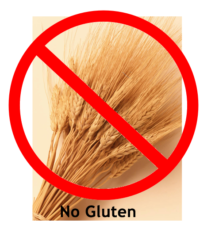Eat no wheat.
That is the core, draconian commandment of a gluten-free diet, a prohibition that excises wide swaths of American cuisine — cupcakes, pizza, bread and macaroni and cheese, to name a few things.
For the approximately one-in-a-hundred Americans who have a serious condition called celiac disease, that is an indisputably wise medical directive.
Now medical experts largely agree that there is a condition related to gluten other than celiac. In 2011 a panel of celiac experts convened in Oslo, Norway, and settled on a medical term for this malady: non-celiac gluten sensitivity.
What they still do not know: how many people have gluten sensitivity, what its long-term effects are, or even how to reliably identify it. Indeed, they do not really know what the illness is.
The definition is less a diagnosis than a description — someone who does not have celiac, but whose health improves on a gluten-free diet and worsens again if gluten is eaten. It could even be more than one illness.
“We have absolutely no clue at this point,” said Dr. Stefano Guandalini, medical director of the University of Chicago’s Celiac Disease Center.
Kristen Golden Testa could be one of the gluten-sensitive. Although she does not have celiac, she adopted a gluten-free diet last year. She says she has lost weight and her allergies have gone away. “It’s just so marked,” said Golden Testa, who is health program director in California for the Children’s Partnership, a national nonprofit advocacy group.
She did not consult a doctor before making the change, and she also does not know whether avoiding gluten has helped at all. “This is my speculation,” she said. She also gave up sugar at the same time and made an effort to eat more vegetables and nuts.
Many advocates of gluten-free diets warn that non-celiac gluten sensitivity is a wide, unseen epidemic undermining the health of millions of people. They believe that avoiding gluten — a composite of starch and proteins found in certain grassy grains like wheat, barley and rye — gives them added energy and alleviates chronic ills. Oats, while gluten-free, are also avoided, because they are often contaminated with gluten-containing grains.
Others see the popularity of gluten-free foods as just the latest fad, destined to fade like the Atkins diet and avoidance of carbohydrates a decade ago.
Indeed, Americans are buying billions of dollars of food labeled gluten-free each year. And celebrities like Miley Cyrus, the actress and singer, have urged fans to give up gluten. “The change in your skin, physical and mental health is amazing!” she posted on Twitter in April…
Read More: nytimes.com

